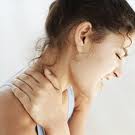 A woman suffers a heart attack every 90 seconds in the United States. Yet according to a 2009 American Heart Association survey only half of women indicated they would call 9-1-1 if they thought they were having a heart attack and few were aware of the most common heart attack symptoms.
A woman suffers a heart attack every 90 seconds in the United States. Yet according to a 2009 American Heart Association survey only half of women indicated they would call 9-1-1 if they thought they were having a heart attack and few were aware of the most common heart attack symptoms.
The Make the Call. Don't Miss a Beat. campaign is a national public education campaign that aims to educate, engage, and empower women and their families to learn the seven most common symptoms of a heart attack and encourage them to call 9-1-1 as soon as those symptoms arise.
The first step toward surviving a heart attack is learning to recognize the symptoms. The campaign, developed by the U.S. Department of Health and Human Services' Office on Women's Health, encourages woman to make the call to 9-1-1 immediately if they experience one or more of the heart attack symptoms listed below. The most common signs of heart attack in both women and men are:
Unusually heavy pressure on the chest, like there's a ton of weight on you
Most heart attacks involve chest pain or discomfort in the center or left side of the chest. It usually lasts for more than a few minutes or goes away and comes back. It can feel like uncomfortable pressure, squeezing, fullness, or pain. It may even feel like heartburn or indigestion.
Sharp upper body pain in the neck, back, and jaw
This symptom can include pain or discomfort in one or both arms, the back, shoulders, neck, jaw, or upper part of stomach (not below the belly button). Pain in the back, neck, or jaw is a more common heart attack symptom for women than it is for men.
Severe shortness of breath
This symptom can come on suddenly. It may occur while you are at rest or with minimal physical activity. You may struggle to breathe or try taking deep breaths. Shortness of breath may start before or at the same time as chest pain or discomfort, and can even be your only symptom.
Cold sweats, and you know it's not menopause
Unexplained or excessive sweating, or breaking out into a "cold sweat," can be a sign of heart attack.
Unusual or unexplained fatigue (tiredness)
Sudden and unusual tiredness or lack of energy is one of the most common symptoms of heart attack in women, and one of the easiest to ignore. It can come on suddenly or be present for days. More than half of women having a heart attack experience muscle tiredness or weakness that is not related to exercise.
Unfamiliar dizziness or light-headedness
Unlike in the movies, most heart attacks do not make you pass out right away. Instead, you may suddenly feel dizzy or light-headed.
Unexplained nausea (feeling sick to the stomach) or vomiting
Women are twice as likely as men to experience nausea, vomiting, or indigestion during their heart attack. These feelings are often written off as having a less serious cause. Remember, nausea and vomiting may be signs that something is seriously wrong, especially if you have other symptoms.
If you have any one of these symptoms and it lasts for more than five minutes, call 9-1-1 for emergency medical care. Even if your symptoms go away in less than five minutes, call your doctor right away—it could be a sign that a heart attack is coming soon. Don't waste time trying home remedies or waiting for the feelings to pass on their own. Remember, quick treatment can save your life.

Comments